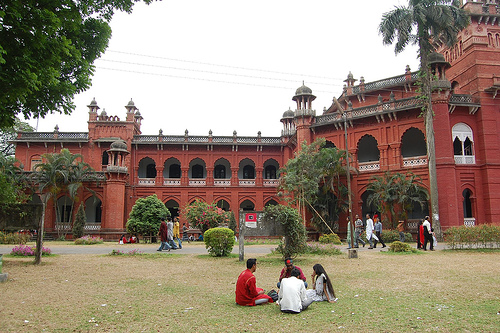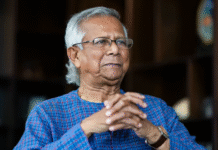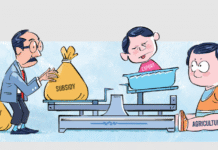The new pay scale caused a stir as expected, but this time, led by the University teachers. They are arguing that they have been shorted by the pay scale as they are being paid than the Secretaries and Senior Secretaries. I am not sure if there are super Secretaries too and what their pays are.
But of course it’s not about the pay only, but about the equivalency of status and who is considered equal to and higher than whom. It’s also a good indicator of who matters and who doesn’t in our complex and power-balanced public sector life.
The finance minister has given his response to the agitation of the 37 public University teachers who abstained from work in protest.
“The most educated section of the country is demonstrating due to the lack of knowledge,” Muhith said. The finance minister refuted the allegation that the new pay scale was degrading for the teachers and brought allegations of corruption against them.
“They don’t know what the pay scale has for them.”
The teachers say they have been discriminated against in the new pay scale although selection grade professors, secretaries, and major generals were on the same grade in the seventh pay scale.
Muhith said that the teachers’ movement was wrong. “We have to control the corrupt practices of the teachers.”
It’s clear that the teachers are not a pressure group that the Government is taking too seriously or is threatened by. Teachers as a pressure group may have seen their prestige mercury decline. Why?
Both bureaucrats and University teachers do enjoy certain benefits apart from their salary, such as housing, medical benefits, pensions et cetera. Teachers get some paltry extra income from checking scripts and other academic duties, but that’s not much. Writing textbooks is another avenue for extra income.
However, if one has been able to enter the lucrative consultancy trade, one is assured of a decent upper-middle class life. Many have also turned towards part-time teaching in private universities too to supplement their incomes. But there is not much else on a large scale which can raise the sectoral income.
But the situation is certainly different with the bureaucrats who have power beyond grading students. They decide on resource management and administration and their decisions affect most aspects of public life.
So every decision they take is, in effect, an economic decision and is an opportunity to earn vast sums of money. This is so universal knowledge, that nobody even discusses this. Corruption is the child of control, and control lies with the administration, whether police or military official.
Politicians and bureaucrats are the ones who make money out of flawed governance systems which we have. This is why it’s intriguing that the venerable finance minister accused the University teachers of corruption of all crimes.
It could be that the stigma of corruption hits teachers hard. It pulls them down in the eyes of the public who don’t expect honesty from public officials, but do from academics.
But why have the authorities thought they could both make such allegations and also pay them slightly less?
It’s possible that the political authorities don’t need the Universities and the teachers as much as they used to, for whatever reason. After all, this is about clout in a bargaining deal and in this race the teachers have fallen behind, even behind the students whom they are supposed to lead.
Given that providing education is only a partial purpose of the Universities, this is to be expected. The main objective seems to be sustaining politics and at that task, the students are doing very well.
Wherever one casts their eyes, the students are able to deliver what is needed and after graduating in politics from the Universities they can move into the wider arena of national politics.
In that space the ex-students are at a much elevated space than the teachers and so instead of a teacher-student relationship, this is much more like future generals in an apprenticeship under a havildar for a short period of time, a common practice in armed forces training. So the relative importance of teachers is also limited.
Had the teachers also not done small time politics to gain small time favours in the campus, this would be fine, but they ask such favours from the very students they teach. So in effect the teachers are already under the students and have little importance of their own. Largely dependent on politics to advance their careers rather than academic activities, they have become second class citizens of the political world. So why should they get higher salaries?
It is largely about their relative importance, and on the scale of things, they sadly matter less than the students.
It is the present teachers leading various trade union bodies in the campus who may bear the brunt of such resentment, and so if the teachers see some relief, it will again be on political grounds and not any other. For that, they will need the students to support their agitation. It’s come full circle.
Afsan Chowdhury is a bdnews24.com columnist.
Source: bdnews24










